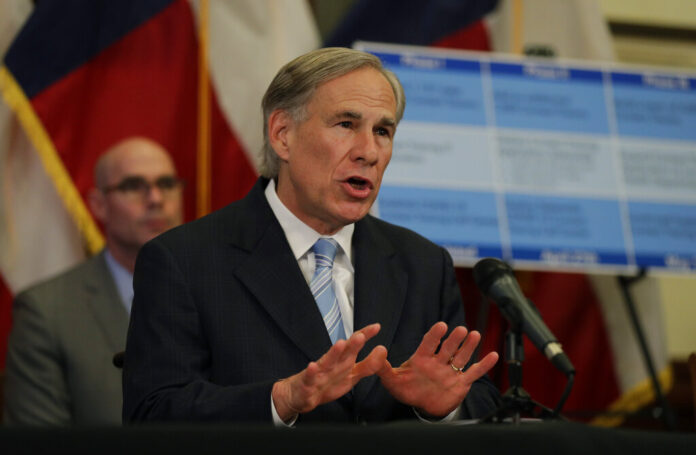Gov. Greg Abbott’s phased reopening of the Texas economy is a gamble. If he guessed right and the greatest threat from the coronavirus has passed, the world’s fifth-largest economy will be back on track to regain strength and begin creating new wealth and jobs. If he’s wrong, cases of COVID-19 could start climbing again, causing an economic relapse that will take even longer to surmount.
Either way, Texas businesses have been hit hard as well as many of their workers who were furloughed or left jobless altogether. They’re going to need help recovering.
Fortunately, Texas voters in 1988 approved a state constitutional amendment that created the Texas Economic Stabilization Fund, setting aside some tax funds for use in emergencies. The “Rainy Day Fund,” as it’s commonly called, has about $8.5 billion.
Despite the economic downturn the viral outbreak has caused, we probably aren’t ready to declare an emergency and tap into the fund. But if the pandemic worsens, the state might need its own bailout.
Therefore, now that restrictions on public gatherings are being phased out, Abbott should consider calling a special session of the legislature to secure the authorization that’s necessary to tap into the fund. A second possible item could be the creation of contingency plans that would allow lawmakers to meet using remote networks, in case another pandemic restricts public gatherings in the future.
As with the current pandemic, an economic crisis spawned the creation of the Economic Stabilization Fund. At the time a collapse in the price of oil and global recession tore into state revenues, forcing offices to close and services to be cut. The fund is designed to keep government running and providing services when those revenues drop.
Fortunately, while frequent calls are made each legislative session to grab money from the fund, lawmakers have been reluctant to do so. They did take $6 billion last year to shore up teacher’s retirement, Medicaid and the Texas Tomorrow educational Fund, as well as provide some hurricane relief.
We aren’t at the emergency stage, and if Abbott has gambled correctly we might not have to touch the Rainy Day fund. It’s best to be ready to do so in case it’s needed, however.
Many of the same conditions that led to the fund’s creation exist today. Closed businesses and self-shelter orders have reduced sales tax revenues considerably, and oil prices have plummeted from the lack of travel. And the sad truth is that it’s times like these, when revenues are lowest, that the need for state services is greatest due to lost jobs, business failures and other economic hardships.
The next regular legislative session begins in January, eight months from now, and the governor reportedly is reluctant to call lawmakers back before then. But if he’s gambled wrong, or if many health experts’ fears are realized and a new viral outbreak occurs in the fall, we should be ready to act quickly to address the economic crises that we know will happen.
We shouldn’t wait for that to happen, when lawmakers again will be confined to home and unable to meet. They should make plans now while they can, and hope they never have to be utilized.



